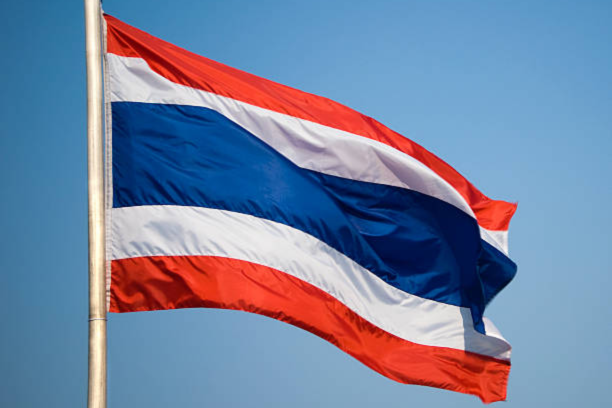How to Register Trademark in Thailand? Thailand’s robust intellectual property framework offers valuable protection for businesses seeking to safeguard their brands in the Southeast Asian market. This article outlines the key aspects of trademark registration in Thailand, providing essential information for those considering this important procedure.

What is a trademark in Thailand?
According to the Thailand IP Law, a trademark is defined as any word, phrase, logo, or sign a manufacturer uses to distinguish and identify its products from its competitors. There exist several different types of marks that are currently recognized under Thai law, ie. trademarks, service marks, certification marks, and collective marks.
Who Can File a Trademark in Thailand?
Any natural or legal person is eligible to file a trademark application in Thailand. However, if the applicant does not reside or have a permanent business establishment in Thailand, a representative or an agent must be appointed to file the application. Foreign applicants that have filed a trademark application in another country and later file a registration application for the same trademark in Thailand within six months of the first foreign application may generally claim the first foreign filing date as the filing date in Thailand
Filing Requirements
To initiate the trademark registration process in Thailand, applicants must provide these information and documents:
- An electronic sample of the mark (max 5cm x 5cm, in black and white or color)
- Full name, address, country, and occupation of the applicant
- Description of the designated goods and services
Notably, Thailand allows multiple-class applications, enabling applicants to seek protection across various categories in a single filing.
Foreign applicants must appoint a registered Thai trademark attorney to represent them. An original Power of Attorney (POA) is required and should be submitted either:
- Simultaneously with the trademark application, or
- Within 90 days of filing, subject to a surcharge
For applicants claiming priority based on earlier filings in other jurisdictions, the following must be provided:
- A certified copy of the priority application/registration
- An English translation of the priority document
- A letter confirming the priority application/registration has not been abandoned or canceled
While these documents should be provided at the filing date, late submission is permitted within 60 days at no additional cost.
Contact ASL for Filing Trademark in Thailand:
Email: [email protected]
WhatsApp/WeChat: (+65) 8749 6692
Examination, Opposition, and Registration
After submitting the trademark application, applicants should be prepared for the following steps:
Examination
- The registrar typically takes 12 to 18 months to examine the application
- Upon completion, the registrar sends a notification letter with the examination results
Acceptance and Publication
- If accepted, the mark is published in the official gazette for a 90-day period
- If rejected, the registrar sends a formal letter detailing the grounds for rejection
- Applicants may have the opportunity to respond or appeal, depending on the nature of the rejection
Opposition Period
- During the 90-day publication period, third parties may file opposition
- If an opposition is filed, the applicant has 60 days to submit a counterstatement
- Failure to respond to an opposition within this timeframe results in the application’s cancellation
Registration and Fee Payment
- If no opposition is filed or if the opposition is successfully overcome, the mark proceeds to registration
- The registrar issues a request for payment of official fees
- Applicants must pay these fees within 30 days of the request
- Upon payment, the certificate of registration is issued.
This detailed process underscores the importance of follow-up throughout the registration process. Applicants should remain attentive to communications from the Thai Trademark Office and be prepared to respond promptly to any requests or oppositions.
Key Takeaways for Applicants:
- Be prepared for a 12-18 month examination period
- Monitor for the examination result notification
- If accepted, be aware of the 90-day publication and opposition period
- Be ready to respond to any opposition within 60 days
- Promptly pay registration fees within 30 days of the request
By understanding and adhering to these timelines, applicants can navigate the Thai trademark registration process more effectively, ensuring their intellectual property rights are secured in a timely manner.
Trademark Validity and Renewal
Thai trademark registrations are valid for ten years from the filing date and can be renewed indefinitely for additional ten-year periods.
Renewal requests should be filed:
- Within 90 days before the expiration date, or
- Up to 6 months after expiration, subject to a 20% surcharge
It’s important to note that Thailand does not provide a grace period for late renewals beyond this timeframe.
To maintain registration, the trademark must be used in Thailand. Third parties may request cancellation if the mark has not been used for three consecutive years prior to the cancellation request.
For international registrations designating Thailand:
- Responses to provisional refusals must be filed within 90 days of issuance, no extensions are available for this deadline (Responses must be in Thai language).
- A local representative is required for foreign applicants.
Trademark searchers can utilize the following databases to conduct a trademark search in Thailand:
- Thai Trademarks
- ASEAN TMview
Register a Trademark in Thailand Through the Madrid System
The Madrid System facilitates the international registration of trademarks, allowing trademark holders in Thailand to extend their protection globally. This system is particularly beneficial for businesses looking to operate in multiple countries.
The Role of the World Intellectual Property Organization (WIPO)
WIPO handles the international aspect of trademark registration:
- Receiving Applications: WIPO receives applications for international registration initially filed through the office in the applicant’s country of origin.
- Classification and Processing: WIPO classifies the goods and services associated with the trademark, processes the application, and ensures it meets all requirements.
- Registration and Notification: Once processed, WIPO registers the trademark in its database, notifies the office of origin, and publishes the registered marks in a periodical gazette.
In conclusion, while trademark registration in Thailand involves several specific requirements, the process offers comprehensive protection for businesses operating in this dynamic market. By understanding these procedures and working with a qualified local representative, companies can effectively secure their intellectual property rights in Thailand.
Contact ASL for Filing Trademark in Thailand:
Email: [email protected]
WhatsApp/WeChat: (+65) 8749 6692
*** After more than 10 years of operation, ASL has been ranked as the top-tier IP Firm for years by Legal500, AsiaLaw, and WTR. We have been well known for OneTouch of IP protection in more than 27 countries with Budget savings from 15-35%. The more clients file trademark, patent, and industrial designs through ASL, the more savings our clients receive.


Leave a Reply